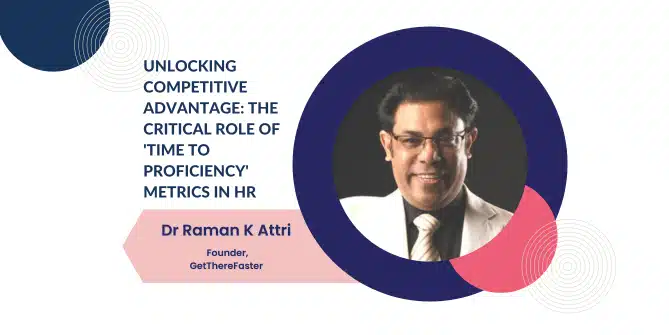In today’s fast-paced business landscape, success isn’t just about assembling a talented workforce; it’s about ensuring that this talent evolves and adapts at a pace that matches the relentless speed of the market. Traditional HR departments have long relied on a plethora of metrics and employee data, from education profiles to diversity distributions, but these metrics often fall short when it comes to truly understanding and measuring workforce effectiveness. Enter the game-changing concept of ‘Time to Proficiency’ metrics, a tool that has the potential to revolutionise HR practices and deliver a competitive edge in the corporate world.
The HR Metrics Conundrum
Historically, HR departments have meticulously collected and analysed data, such as demographic profiles, retention ratios, and compensation benchmarks, providing a snapshot of the workforce’s composition at any given moment. While these metrics serve as valuable key performance indicators (KPIs) for HR, they don’t necessarily address the crucial question: Is the workforce evolving rapidly enough to stay competitive in the market?
For modern business leaders, it’s not merely about understanding the composition and capabilities of their workforce; they need to ensure that this composition translates into competitiveness and agility in the marketplace. The key challenge is determining if the workforce is developing the necessary skills and proficiencies quickly enough to keep pace with the ever-changing demands of business.
The Urgent Need for ‘Time to Proficiency’ Metrics
To bridge this gap and align HR practices with business imperatives, organisations must introduce a new breed of metrics: ‘Time to Proficiency’ measurements. These metrics track the average time it takes for employees to attain the level of mastery required to consistently deliver reliable business outcomes.
The beauty of ‘Time to Proficiency’ metrics lies in their granularity. They should be meticulously tracked, analysed, and reported at various levels within the organisation. From individual employees to job roles, teams, departments, and finally, the organization as a whole, these metrics offer a comprehensive view of how swiftly an organisation is nurturing and enhancing its workforce.
By examining historical trends in ‘Time to Proficiency,’ organisations gain insights into the speed at which their workforce is developing and can make informed decisions on how to accelerate this process to gain a competitive edge. When benchmarked against peer organisations, a longer ‘Time to Proficiency’ reveals a higher risk of losing ground to the competition, making it a vital metric in the quest for sustained success.
The Transformational Impact
Implementing ‘Time to Proficiency’ metrics shifts the focus from static data collection to dynamic workforce development. It holds both HR and employees accountable for continuous growth and skill enhancement. Instead of relying solely on supervisory pressure, these metrics provide a quantifiable standard for performance improvement.
However, the adoption of ‘Time to Proficiency’ metrics isn’t a simple task. It requires a long-term strategy, integration into the business dashboard, and a culture where managers and department heads consider it mandatory to measure and report these metrics regularly.
In conclusion, in the era of rapid business evolution, HR departments must evolve too. ‘Time to Proficiency’ metrics offer a powerful tool for ensuring that the workforce remains competitive and agile. By shifting the focus from static workforce data to dynamic skill development, organisations can not only survive but thrive in the ever-accelerating marketplace. Embracing these metrics is the first step toward securing a sustainable competitive advantage in the business world of tomorrow.






Get involved!
Comments